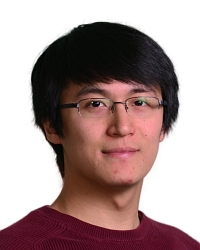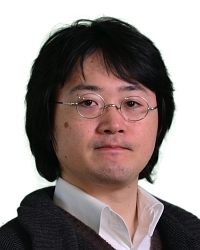TR2020-071
Learning to Modulate for Non-coherent MIMO
-
- , "Learning to Modulate for Non-coherent MIMO", IEEE International Conference on Communications (ICC), DOI: 10.1109/ICC40277.2020.9149438, June 2020.BibTeX TR2020-071 PDF Video Presentation
- @inproceedings{Wang2020jun,
- author = {Wang, Ye and Koike-Akino, Toshiaki},
- title = {{Learning to Modulate for Non-coherent MIMO}},
- booktitle = {IEEE International Conference on Communications (ICC)},
- year = 2020,
- month = jun,
- publisher = {IEEE},
- doi = {10.1109/ICC40277.2020.9149438},
- issn = {1938-1883},
- isbn = {978-1-7281-5089-5},
- url = {https://www.merl.com/publications/TR2020-071}
- }
- , "Learning to Modulate for Non-coherent MIMO", IEEE International Conference on Communications (ICC), DOI: 10.1109/ICC40277.2020.9149438, June 2020.
-
MERL Contacts:
-
Research Areas:
Abstract:
The deep learning trend has recently impacted a variety of fields, including communication systems, where various approaches have explored the application of neural networks in place of traditional designs. Neural networks flexibly allow for data-driven optimization, but are often employed as black boxes detached from direct application of domain knowledge. Our work considers learning-based approaches to end-to-end design of modulation and signal detection for the non-coherent multi-input multi-output (MIMO) channels. We demonstrate that simulation-driven optimization can outperform traditional Grassmann designs. Additionally, we show the feasibility of noncoherent MIMO communications over extremely short channel coherence time, with as few as two time slots, which have never been explored in existing literature due to design hardness.
Related News & Events
-
NEWS MERL Scientists Presenting 5 Papers at IEEE International Conference on Communications (ICC) 2020 Date: June 7, 2020 - June 11, 2020
Where: Dublin, Ireland
MERL Contacts: Toshiaki Koike-Akino; Ye Wang
Research Areas: Communications, Machine Learning, Signal Processing, Digital VideoBrief- Due to COVID-19, MERL Network Intelligence Team scientists remotely presented 5 papers at the IEEE International Conference on Communications (ICC) 2020, that was scheduled to be held in Dublin Ireland from June 7-11, 2020. Topics presented include recent advances in deep learning methods for communications and new access systems. Presentation videos are also found on our YouTube channel. Our developed technologies can facilitate a great advancement in broadband virtual conferencing which is required in post-COVID-19 society.
IEEE ICC is one of the IEEE Communications Society’s two flagship conferences dedicated to driving innovation in nearly every aspect of communications. Each year, more than 2,900 scientific researchers submit proposals for program sessions to be held at the annual conference. The high-quality proposals are selected for the conference program, which includes technical papers, tutorials, workshops and industry sessions designed specifically to advance technologies, systems and infrastructure that are continuing to reshape the world and provide all users with access to an unprecedented spectrum of high-speed, seamless and cost-effective global telecommunications services.
- Due to COVID-19, MERL Network Intelligence Team scientists remotely presented 5 papers at the IEEE International Conference on Communications (ICC) 2020, that was scheduled to be held in Dublin Ireland from June 7-11, 2020. Topics presented include recent advances in deep learning methods for communications and new access systems. Presentation videos are also found on our YouTube channel. Our developed technologies can facilitate a great advancement in broadband virtual conferencing which is required in post-COVID-19 society.

